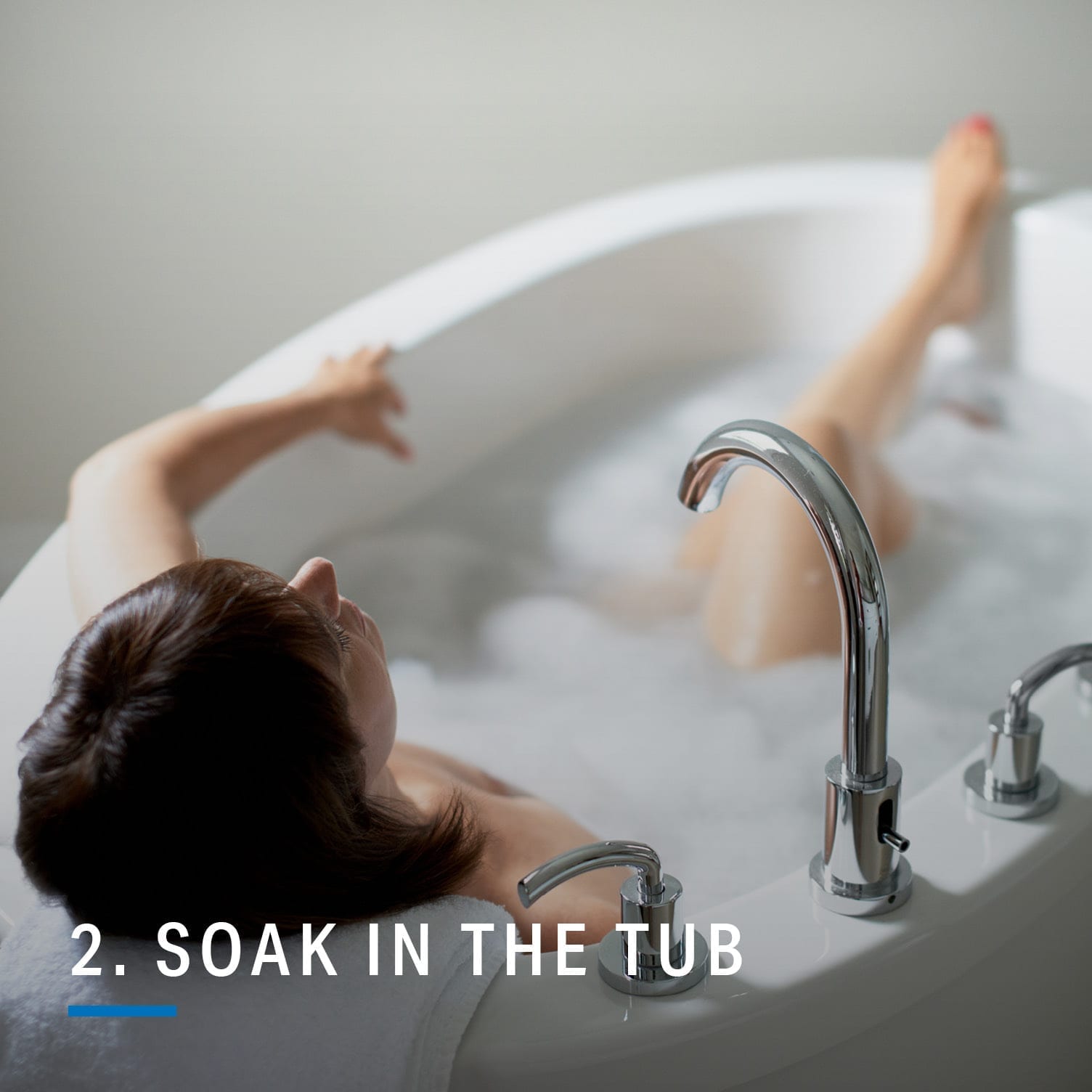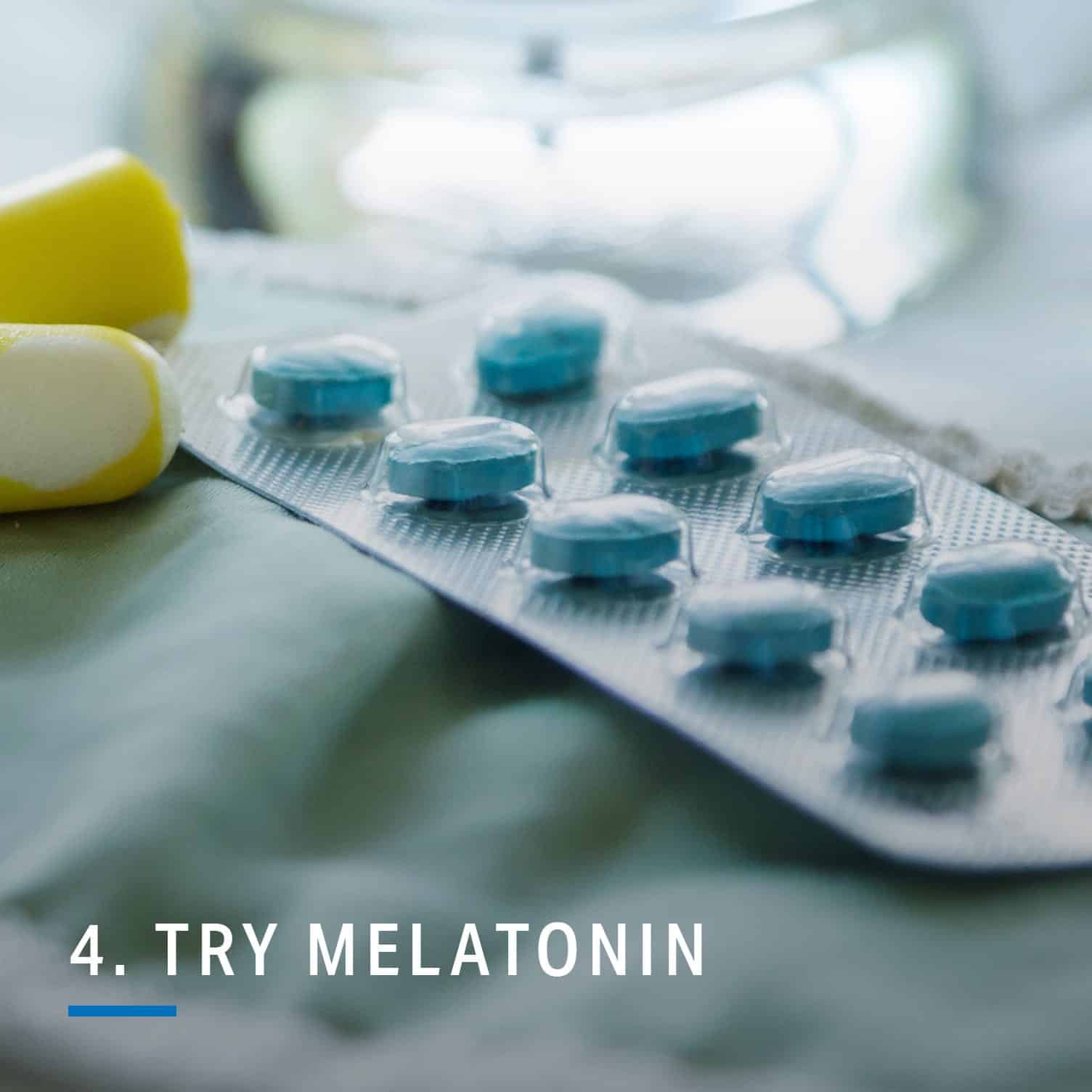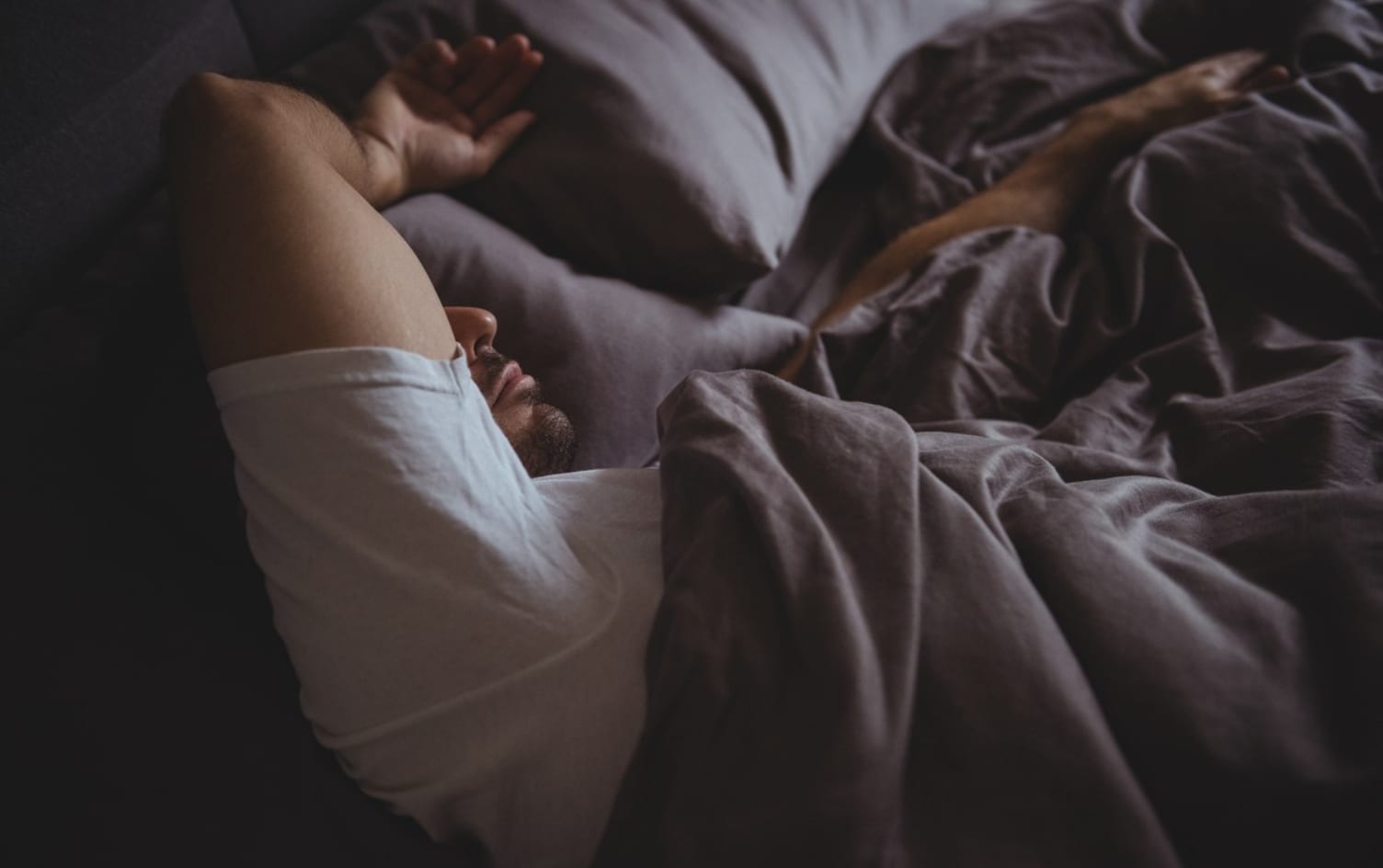Few things are more frustrating than crawling under the covers and staring at the ceiling. Before relying on prescription sleep medications, which come with serious side effects, try some science-backed natural ways to drift into dreamland. Research published in the journal Sleep Disorders found 80% of people taking prescription sleep medications for chronic insomnia experienced side-effects such as drowsiness, trouble concentrating and impaired memory.
The next time you’re struggling to fall asleep, try these four natural sleep solutions:

A steaming cup of herbal tea can help ease insomnia. Chamomile, for example, is a known sleep inducer. It’s believed that a flavonoid, apigenin, in the herb binds to benzodiazepine receptors in the brain, giving chamomile a mild tranquilizing effect, according to 2010 research.
“Some herbs, like valerian, hops, California poppy and passiflora, are sedatives, while others like chamomile and lemon balm calm the mind,” explains Cristin Gregory, an acupuncturist, herbalist and owner of Wellbeing Natural Health. “All of these benefits can help a person fall asleep easier and stay asleep longer.”
To ensure your evening mug of tea doesn’t interfere with sleep, Gregory suggests steering clear of tea made from stimulating herbs such as ginko and ginseng or “warming” herbs like ginger and cinnamon that heat up the body and make it harder to fall asleep.

Your core temperature drops before bed, preparing your body to drift into sleep. Taking a hot bath (or shower) can help. One study found that soaking in a hot tub within two hours of bedtime helped participants fall asleep faster. It can also improve the quality of your sleep. Research showed individuals who took a hot bath before bed were more likely to report falling asleep faster and improved quality of sleep than those who did not soak in a hot tub before bed.
If stress or pain is keeping you from falling asleep, 2018 research published in the journal Evidence-Based Complementary Alternative Medicine found taking a hot bath lowered stress, tension and anxiety, which could make it easier to slip into slumber.

The more you sweat, the better you’ll sleep. One study followed 2,600 adults and found those who logged 150 minutes of moderate-to-vigorous intensity physical activity per week reported 65% improvement in sleep quality.
Exercise helps build sleep drive, which promotes deep sleep at lights out, according to sleep specialist Dr. Lara Kierlin of Northwest Sleep and Behavior. Instead of letting a restless night derail your workout routine, Kierlin suggests prioritizing exercise, explaining, “A bad trap is to have a poor night [sleep] … because you only serve not to build sleep drive essential for the next night of sleep and a negative pattern develops.”
While consistency is more important than timing, Kierlin suggests exercising late in the afternoon may promote declines in body temperature that help you fall asleep.

Melatonin, a hormone produced in the pineal gland, helps regulate your internal clock and sleep/wake cycles. Taking a melatonin supplement can help give your body the cue it’s time for sleep when it’s dark outside, according to Gregory.
A study published in the journal PLOS One found melatonin helped improve sleep quality, sleep duration and decreased the amount of time it took to fall asleep. Gregory suggests starting with a low dose (1–2 milligrams) before bed; taking too much, she warns, could keep you awake.
“You can also improve your melatonin levels by making sure you’re getting lots of sunlight during the day and sleeping in total blackness at night, avoiding all light, even from clocks and phones,” says Gregory. “Most of us spend too much time inside during the day and use LED lights, phones and computers too much at night, which contributes to insomnia and lack of rest.”
Whether you struggle with chronic insomnia or occasionally have trouble falling asleep, try one of these natural solutions to help you get a restful slumber.




